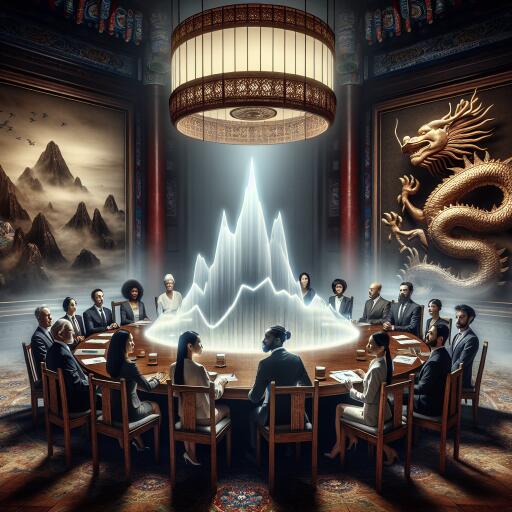China’s Ruling Communist Party Convenes to Address Economic Challenges
The Communist Party of China has initiated a crucial four-day assembly, a gathering that’s poised to chart a course towards self-reliant economic development amidst escalating national security concerns and increasing restrictions on the utilization of American technology. This pivotal meeting, kicking off on Monday, is set against a backdrop of worldwide attention on China’s strategic directives, particularly in the economic sphere.
Focused traditionally on deliberating long-term strategic concerns, this assembly’s agenda is anticipated to be heavily influenced by the current geopolitical tensions and the need for a resilient economy. The Communist Party is expected to outline strategies that emphasize technological independence and sustainable growth, reflecting the leadership’s commitment to fortifying China’s economic positioning in an increasingly polarized global landscape.
Beyond the strategic objectives, the business community and investors are on the edge of their seats, awaiting any announcements of immediate steps the party might undertake to address the multiple economic hurdles China faces today. Among these challenges, a lackluster post-COVID-19 recovery and a prolonged downturn in the real estate market stand out as pressing issues that demand swift and effective policy measures.
The global economic environment remains precarious, with China’s economic trajectory under the scanner. The world’s second-largest economy has experienced stymied growth, partly due to rigorous lockdowns and a conservative approach to reopening post-pandemic, which has had a cascading effect on global supply chains and market sentiments. The real estate sector, once a pillar of rapid economic growth, has been particularly hard-hit, exacerbating the economic slowdown and highlighting the urgent need for policy interventions.
The Communist Party’s meeting is not just a routine political event but a signal of China’s strategic priorities and its approach to navigating complex economic landscapes. The emphasis on self-sufficiency, especially in the technological domain, underscores China’s response to international pressures and its vision for a secure and prosperous future. It also reflects an acknowledgment of the vulnerabilities exposed by reliance on foreign technology and a determination to transcend these challenges through innovation and resilience.
As the meeting unfolds, the international community, investors, and policy-makers around the world will keenly watch for indications of China’s economic policy directions. Any measures aimed at reviving the real estate sector or bolstering the post-pandemic recovery will be of particular interest, given their potential to influence global economic dynamics.
In conclusion, the Communist Party’s four-day assembly is a critical juncture for China’s economic strategy, with implications that extend far beyond its borders. The anticipated emphasis on self-reliance and technological independence, along with potential immediate economic interventions, highlights the complexities of China’s path towards sustained economic growth and its role on the world stage in the years to come.
